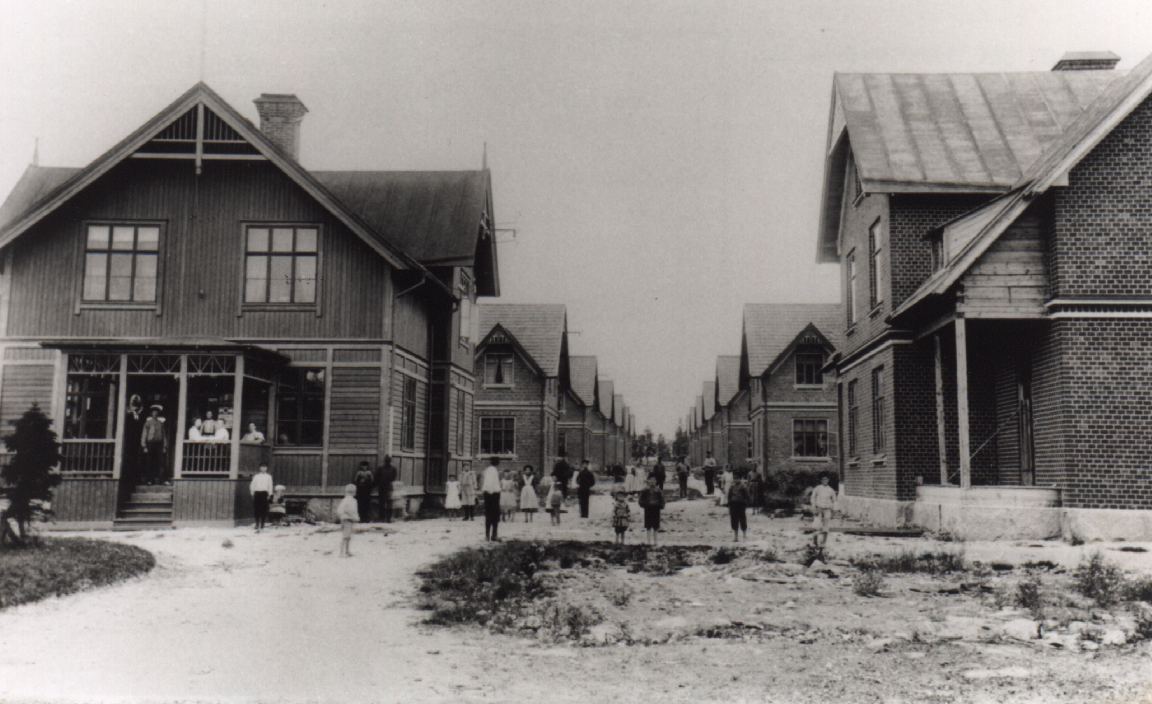
NAUD PRODUCTION presents in co-production with SWEDISH TELEVISION, with support from THE SWEDISH FILMINSTITUTE
"SKERRY FAIRY-TALE"
a film by RUNAR ENBERG
The year is 1891. The director of MoDo, Frans Kempe, is about to build the largets
and most modern sawmill in Europe and a complete ideal society after his own mind. The
place he chooses is Norrbyskär, som skerrys in the Baltic Sea oustide the cost of the
region Västerbotten in northern Sweden.
The eperimental society with it's 1.500 inhabitants and the large sawmill will live for
almost 60 years. The greater part of the workers is about to come from the old MoDo
sawmill at Moliden, from the mill at H¨åknäs and from other parts of northern Sweden
and Finland. They will refine the green gold of the forests and in the harbour ships from
all around the world will wait for there cargo.
The people of Norrbyskär will not just be given work but there families will be given
housing, schoools, leisure time activities and so on. The workers will be given pension,
fonds for unemployment, foodsupport and much more. At the same time the company demands
complete loyalty and much about the life and itäs going is decided by Kempes marionettes,
the factory director and the teacher.
Frans Kempe was not a democrat, he ruled his company like an emperor. His attitude was as
a patriarch and he was against both the unions and employer's associations. He wanted to
negotiate himself with the workers. He was ahead within the social areas comparing to many
other directors and in fact, at the late 19th century, he offers the workers to by shares
in the company, something as an idea that came through as late as during the 1980's.
In the film SKERRY FAIRY-TALE you will meet people who lived within the society of
Norrbyskär when it flourished. In dramascenes you will meet the societybuilder and
powerful director Frans Kempe who did build up the large company MoDo. With this, old
newreels, stills and dramasequences are mixed with many beautiful scenes from today's
Norrbyskär.
It's a story to remember.
Gunnel; "People talk about a fairy-tale island. The fairy-tale is gone now."
Harald; "This was a unique community right out in the Baltic Sea."
Birger; "The happiest days of my life was on Norrbyskär. It was a home that
was good. You lived like in a bee-hive, all by yourself. And probably that was good. None
of the bad things got in. He wanted a community that he could rule. He was like a father
to the workers."
Agnes; "Norrbyskär was regarded as a kind of miracle. Such a modern society,
a workers' community."
Seth M. Kempe; "Frans Kempes life has been richer than most. He will always be
remembered as one of the most distinguished of northern Sweden and he's name will be
mentioned as a thoughtful memory not just by us but by the hole of Sweden."
PRODUCTION
NOTES
PICTURES
FILMS
HOME
© 1997 Naud Production AB